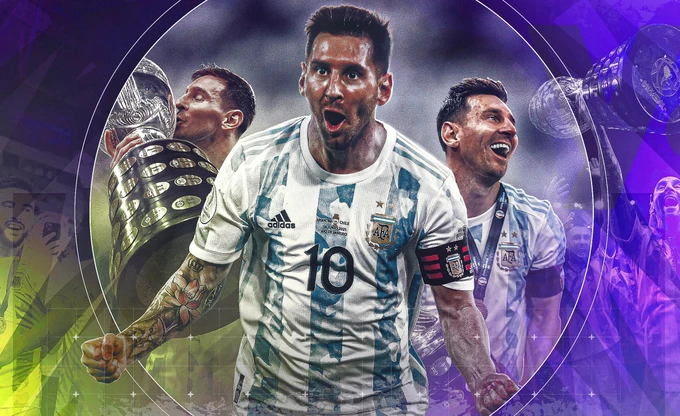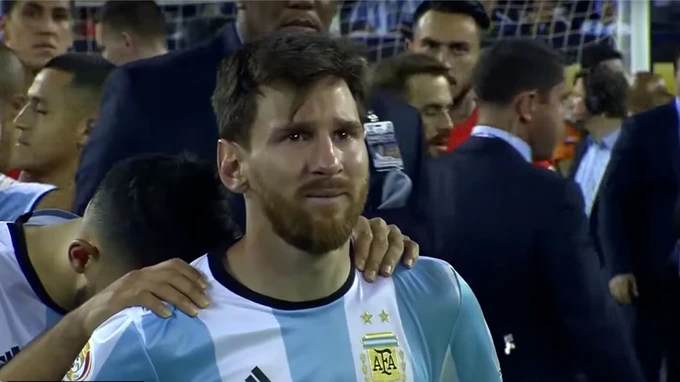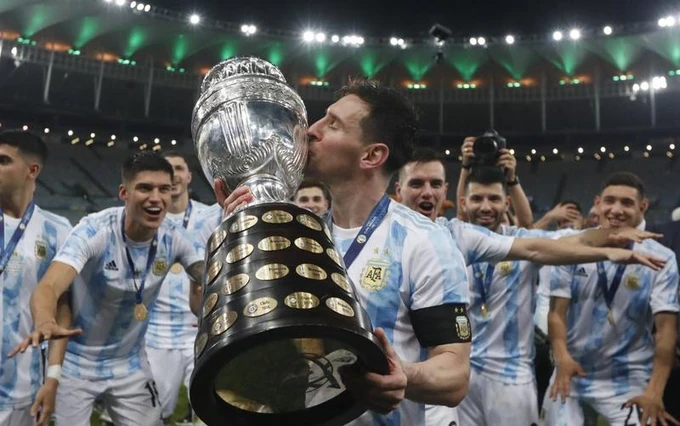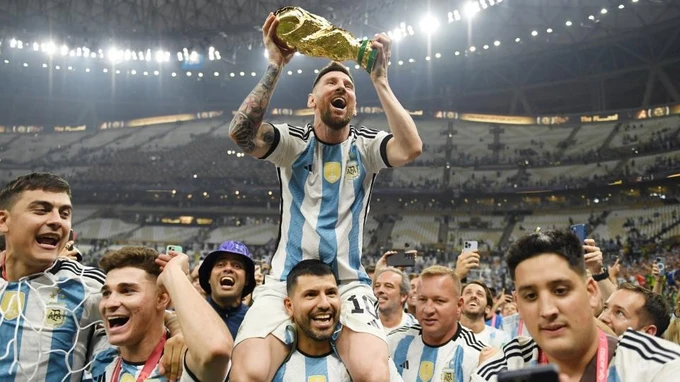Tons of pressure weighed on Lionel Messi and one harrowing night in June 2016, caused the man across the galaxy to tumble to Earth. Anxiety and stress haunted him throughout the thrilling Copa America final. The Chileans took him to the penalty shootout, then broke him. But the harshness of the Argentine people is the terrible thing that Messi has to face.

His writhing body fell down. His face contorted in pain. Guilt surrounded him, tears fell and a vicious cycle began again.
This has been the Messi-Argentina story for more than a decade. It was the cruel stereotype that bound him to his country and destroyed their complete dreams.
Argentines curse, blame and interrogate: Do you care about the national team? Why do you look so uninterested? Why do you always fall apart whenever you wear the white and blue of the Albiceleste?
The pain is both physical and mental. He failed in 2010. He failed in 2011. He was “destroyed,” as teammate Angel Di Maria said, after failing at the 2014 World Cup. At Copa America 2016, he failed. That was the third consecutive final loss, crushing his spirit. “It’s over,” he told reporters late that night in New Jersey. “The national team is over for me.”

He finally returned for the 2018 World Cup. But there, on the biggest stage, he languished. There, every four years, he had to bear an unbearable burden. There, with billions of people waiting, he told this same sad story to the whole world. Every World Cup became a chapter, pieced together, heartbroken — until another tournament changed it forever.
It was Copa America – the quadrennial South American championship, whose 48th edition is about to take place in the US – that untied Messi in 2021 and paved the way for him to reach the top of football. After 28 barren years, Argentina finally conquered Brazil, and Messi left for the 2022 World Cup, his final coronation, with “complete peace of mind”.
“The Copa America changed his life,” Sergio Agüero, a teammate and longtime friend, told ESPN as Messi shined in Qatar. “It gave him life. After the Copa America, he was happy again at the Albiceleste, just like when we played together for the U20 team.”
Copa America “liberates” Messi
Messi was born and raised in Rosario, Argentina, but developed his talent in Barcelona, Spain. Geographic and cultural distance shaped his complex relationship with Argentina. On lonely Catalan nights, as a homesick teenager, he longed for Rosario’s comfort. He aspires to represent his country “wanting more than anyone, to win a title with the national team”.
But as he grew up, from a shy prodigy to an unparalleled phenomenon, his country became increasingly suspicious of his differences. Argentines are amazed by the talent, but they hesitate when compared to Diego Maradona, their World Cup winner. Maradona was a man of the common people, a pibe – a commoner – who rose from poverty to greatness, with flaws and rude charm. Messi, on the other hand, plays excellently but is carefree. “He is more Barcelonan than Argentinian,” people have said.
So they all celebrate his trophies at Barcelona, the Champions League title, his great goals and the Ballon d’Or, but then they ask: What has he done for Argentina? They placed their expectations on his slender shoulders, then the criticism got out of control.
It first struck Messi at the 2010 World Cup. It hit him a year later, at the Copa America on home soil. After the quarter-final loss to Uruguay, Messi’s 16th consecutive international match without a goal, they howled. They called him a foreigner and a “failure.” And their words hurt. All of these things increased the pressure and anxiety, making him seem paralyzed every time he stepped onto the international stage.
“He suffered more than anyone,” Agüero said in a recent documentary. Every time, Messi went into his room and locked himself while the rest of them were having dinner.”
By 2020 and 2021, after being eliminated early from the 2018 World Cup and 2019 Copa America, hatred and heartbreak had turned into resignation. Hopes and dreams were dashed – until another Copa America took place amid the COVID-19 pandemic.

That was the time when Messi was very different from before. It’s like all the oppression turned him into a rock. He scored or assisted 9 of Argentina’s 11 goals en route to the final. Before going on the field in the final match, the quiet, shy boy from Rosario stood among his teammates, speaking eloquently like a speaker, inspiring everyone.
Two hours later, he fell to his knees and burst into tears when the referee’s whistle sealed a 1-0 victory over Brazil. Dozens of teammates rushed towards him and surrounded him. A few minutes later, they lifted him into the air.
“It was like a dream, a breathtaking moment,” Messi said. I can’t believe it happened.” During the celebration held on the occasion of the World Cup qualifiers – his eyes sparkled again as adoring fans sang his name. He later said in a documentary chronicling Argentina’s championship, “it was the most beautiful thing that happened in my sporting career”.
Messi comfortably and confidently lifts Argentina in the 2022 World Cup
That Copa America title beat everything. It helped maintain the 36-match unbeaten streak that Argentina brought to Qatar. It inspired “Muchachos,” the fan-written song that became Argentina’s unofficial national anthem in 2022.
The Copa America title also “makes us feel more comfortable”, Messi said before the World Cup. “We are calmer, which allows us to work in a different way without worrying.”
Everything after that is history. It was Messi and the World Cup title for Argentina for the first time since 1986. It also changed Messi’s outlook on the later stages of his career. Messi previously said that the 2022 World Cup would “definitely” be his last World Cup, but now he seems to be reconsidering. He will lead Argentina to another Copa America, their seventh but first since the pressure disappeared. Now that he is free, Messi seems determined to enjoy every last moment of it. And after that?

“Time will tell whether I will participate in the 2026 World Cup or not,” Messi said last year and has just reiterated. this month. He likes to avoid “thinking about two or three years from now,” because the present is too glorious; because his teammates are happy, and because fútbol – soccer is fun. “After many years of suffering, now we are experiencing a special moment that I have never experienced before, I want to enjoy it to the fullest,” Messi said.




